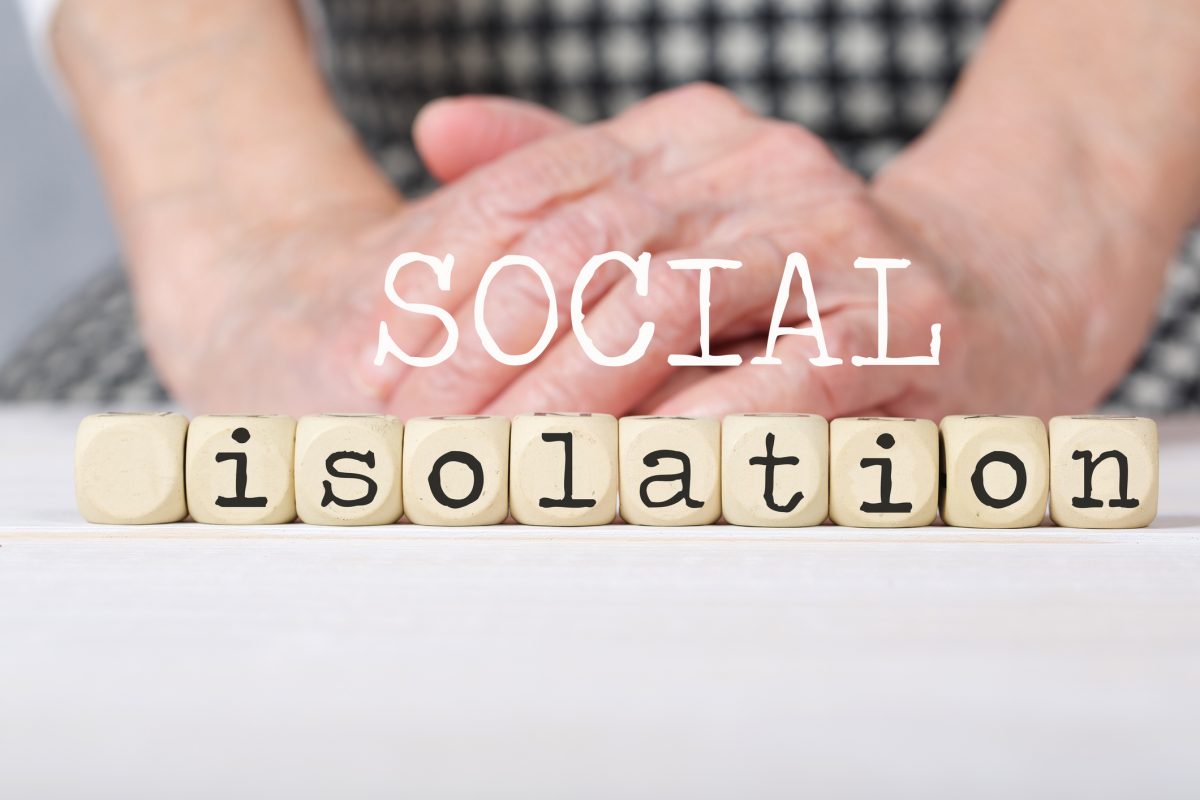Health Effects of Social Isolation
Is social isolation damaging us more than protecting us? Is it increasing our susceptibility to illness? The notion of lowering social interactions may be harming us and our immune systems more than we know. We have been given the perspective that by isolating we are protecting ourselves, our loved ones and the community around us. Although it seems this may be to the detrimental of our own immune and mental health in the long run, inevitably leading to a sicker and unhealthier community. But are we not trying stop this very thing from happening? This could open us up to more disease and illness then what it’s meant to prevent.
Recent studies show that emotional and immunological systems share more than a similarity in functions. A large body of both clinical and experimental evidence shows that there is an increase of emotional disorders in patients suffering from immune diseases and that there is an increased susceptibility to immune diseases in patients suffering from mental disorders(1). These two systems go hand in hand, so when one is disrupted the other is as well. This demonstrates a clear association between your mental/emotional well-being and how your immune system functions. In fact, the two systems develop almost side by side, and when one becomes defective, the other one often does the same(1). One study has shown a consistent link between conscientiousness and a reduced inflammatory response, as judged by the lower level of C-reactive protein (CRP) in subjects with this personality trait(1).
Adapting to physical or psychological challenges or threats involves the modulation of three regulatory systems: the nervous, endocrine and immune systems. Correct communication of these systems is required to maintain homeostasis (balance) which guarantees the health and survival of the individual(4). While the stress response is essential for our survival, failure to address this stress response can impair the functions of these regulatory systems, preventing their communication. Under these circumstances, loss of homeostasis ultimately leads to pathologies that compromise our survival(4). Disruption of social bonds, leads to emotional stress increasing the risk of morbidity and mortality(4).
Psychosocial stress, specifically social isolation, is a major risk factor for the development of numerous psychological and physiological disorders(2). Social isolation in particular has consistently been shown to negatively influence health. There is a large body of literature that implicates negative changes in immune functions due to social stressors, leading to possible impairment of the pathways required to destroy foreign cells(2). By this it is clear that through stress and emotional disruption that we are inhibiting our body’s abilities to fight off pathogens.
A study investigated the effects of 10 days isolation and showed that immune cells CD69+ lymphocytes decreased during this period, most likely caused by changes in the ratio between NK and non-NK lymphocytes(3). This short period of isolation demonstrated a suppression of lymphocyte proliferative reaction, in other words lowering immune cells/immune function which inhibits the body’s capacity to combat invading pathogens.
People have the notion that by isolating and not visiting loved ones, specifically the older generations be it your grandmother or grandfather in these times that you are protecting them from a virus, which is valid to some degree. But at the same time, you are depriving them of your love, presence and connection that leads to them feeling lonely, sad and depressed, which from the evidence shows that this may be at their detriment to a greater degree, decreasing their immune systems function. So, if they do contract a virus, and without you by their side for that emotional support and happiness, you are only pushing them more towards their demise. Your families love, affection and presence would only enhance their immune system and their desire to keep living. After all is it not better to die with your loved ones around you, than to die alone? I dislike having to give such grim perspectives but it’s something we all really need to consider. The feelings of joy, happiness, love and connection play a vital role in increasing our survival rates but unfortunately, I do not see this being considered or implemented during these times.
Written by Luke Pavasovic
Director and Naturopath at Alchemic Health
facebook.com/alchemichealth
www.alchemichealth.com
Reference:
1. https://www.ncbi.nlm.nih.gov/pmc/articles/PMC5442367/
2. https://www.ncbi.nlm.nih.gov/pmc/articles/PMC4409529/
3. https://pubmed.ncbi.nlm.nih.gov/15145927/
4. https://pubmed.ncbi.nlm.nih.gov/24588822/

